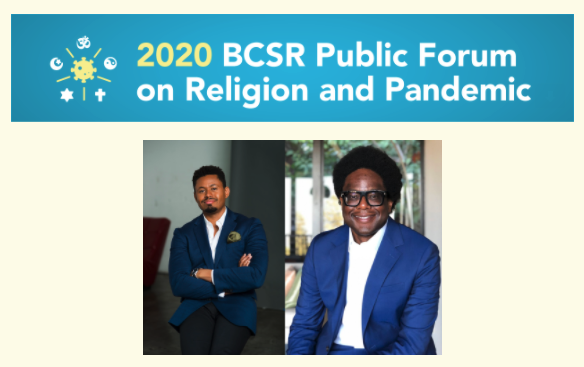In the Shadows of Whiteness: Race, Religion, and Radicalization in the Time of Pandemics
Friday, March 5 | 12-1:30 pm
Online, register here to receive a personalized Zoom link to join the webinar
Terence Keel (Associate Professor in the Department of African American Studies and Institute for Society and Genetics, UCLA)
Osagie K. Obasogie (Haas Distinguished Chair and Professor of Bioethics in the Joint Medical Program and School of Public Health, UC Berkeley)
While the recent January 6th insurrection at the Capitol can be seen as a culmination of a longer history of racialized violence and white nationalism in the United States, the failure to unilaterally condemn it at the top levels of government exposes a critical turning point in the state of U.S. politics and society today. Moreover, in the ensuing examinations of the event, there has yet to be an account for the role of race and religion in giving coherence to the broader political claims and grievances propelling the insurrection. For this event in the Berkeley Forum on Religion and Pandemic series, we bring together Prof. Osagie K. Obasogie (UC Berkeley, Joint Medical Program & School of Public Health) and Prof. Terence Keel (UCLA, African American Studies & Institute for Society and Genetics) to discuss the relationship between Christianity, white nationalism, and white supremacy that fuels the discourse during these unprecedented times. How has religion shaped modern racial thinking, and how does it manifest in today’s world? In a moment of multiple, overlapping pandemics — COVID-19, racialized police violence, white nationalism — how does whiteness and religion sustain regressive, anti-science, and racist politics that create pandemic synergies toxic to democracy and deadly for communities of color?
As part of the Berkeley Democracy and Public Theology Program BCSR’s Public Forum on Religion and Pandemic brings together scholars and the public to address the current pandemic and its commensurate crises, exploring the intersection between religion and timely topics such as the environment, public health, elections and democracy, religious freedom, and nationalism in order to foster dialogue and reflection.





